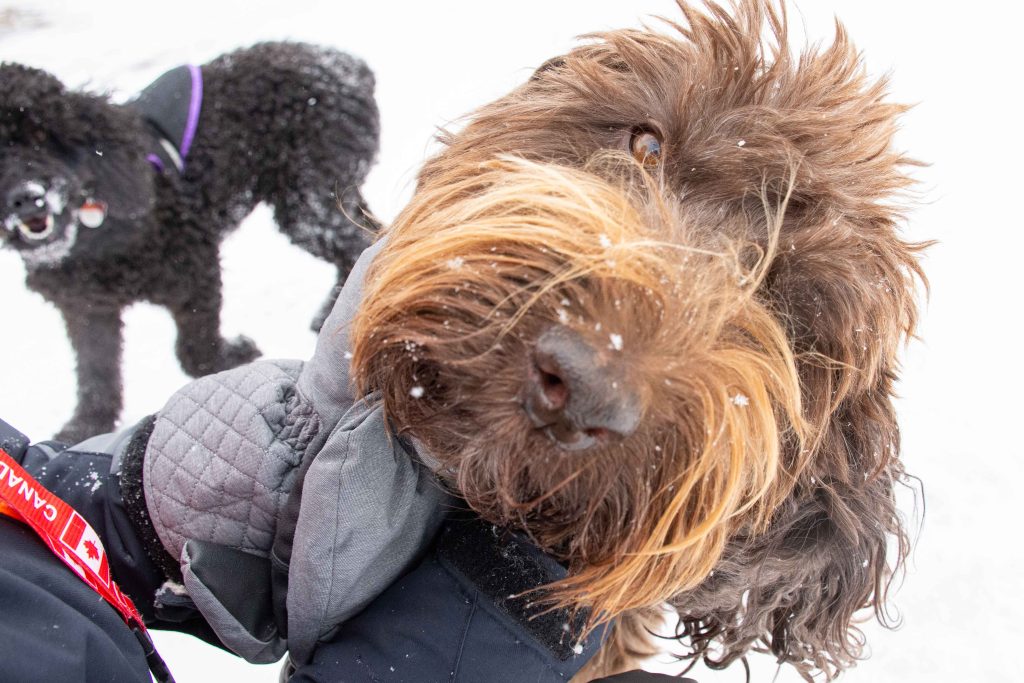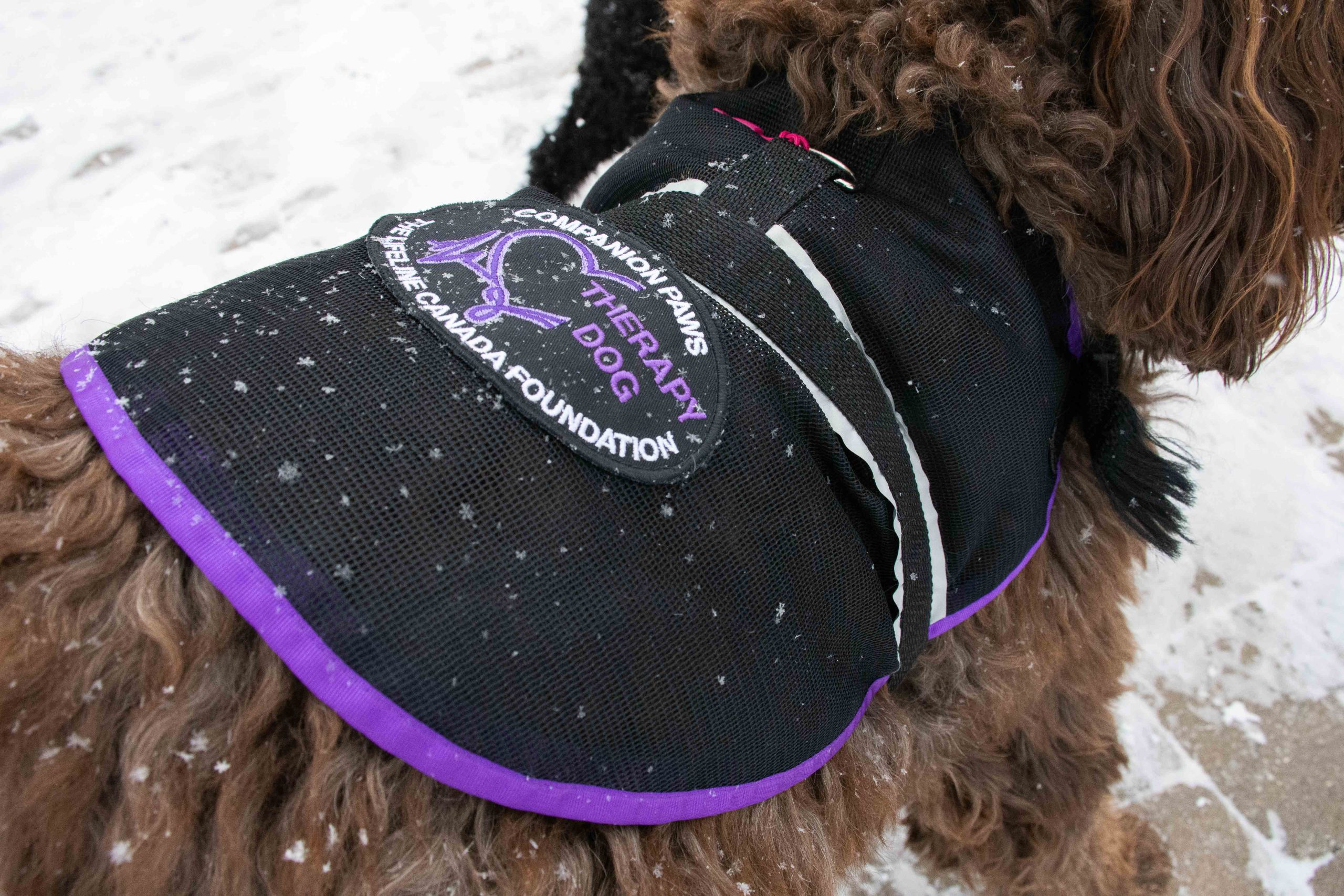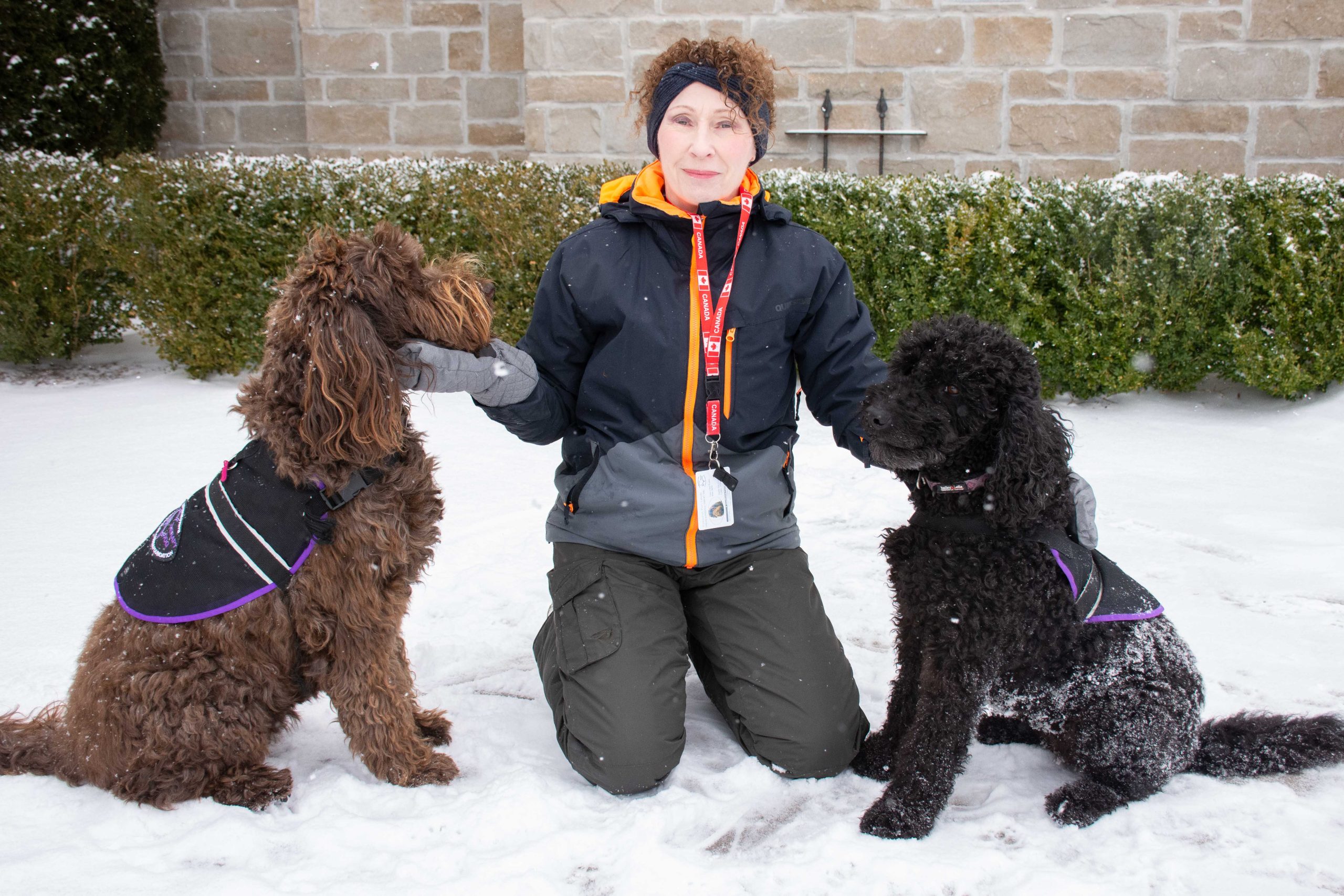FERGUS — Afraid of needles? You’re not alone.
Results from a vaccine hesitancy and needle fear survey, published by Solutions for Kids in Pain and Healthcare Excellence Canada in 2021, showed a fear of needles afflicting over 60 per cent of children, close to half of adolescents and almost 30% of adults.
Most people aren’t exactly looking forward to getting jabbed on a normal day, but a sharp fear of needles leads some away from vaccination completely.
Kris Lewis has not one, but two floofy solutions: Frankie and Ema.
Both Barbets, the French water canines are trained as therapy dogs through The Lifeline Canada’s Companion Paws program and are available to accompany needle-averse people to provide comfort and a distraction to help alleviate the stress and anxiety of getting an injection.
“It’s magical,” Lewis said, adding children “don’t even know they’ve had [the needle]” when a dog is present.

Frankie, a French water dog, receives some affection from owner Kris Lewis.
Ema and Frankie were temperament-assessed before moving onto more intensive training involving sensory stimulation, obeying commands and navigating crowds – to name a few.
“All of our Certified Companion Paws Therapy dog teams are tested with the toughest guidelines of their kind in Canada,” said Lifeline CEO Liane Weber in an email.
Therapy dogs are evaluated annually as a condition to remain certified and Weber said certification requires dedicated, authentic training.
“They have to really like people; they have to have the temperament,” Lewis said of dogs best suited for the task.
Prior to assisting with vaccination trips, Lewis visited long-term care homes and educational settings like the University of Guelph, where students could book a 10 minute de-stresser with Frankie and Ema before an exam.
Having spent over three decades as a frontline health care worker, the now retired nurse said offering the animal therapy service provides a unique way to step up during the pandemic.
Weber praised Lewis’ mental health advocacy and selflessness as a volunteer.
“They continue to bring so much joy during these very challenging times,” she said of the enthusiastic trio.
People can have a hard time understanding those afflicted by needle fear and outright phobias, Lewis said, and they often group them in with anti-vaccine groups.
“It is a fear for some people, it isn’t a choice. There is a physiological response in people’s bodies — people faint, they just can’t help it,” Lewis said.
The sight or mere thought of a needle can make someone faint — caused by a rapid increase in heart rate and blood pressure followed by a sudden drop in rate and pressure.

Frankie, a French water dog, sports a Lifeline Canada Foundation Companion Paws vest.
“It’s not just made up,” Lewis said, pointing to the American Psychiatric Association’s Diagnostic and Statistical Manual of Mental Disorders which includes needle phobia as a “blood-injection-injury type phobia.”
For others, the anxiety caused by needles is less a phobia but still a feeling strong enough to lead to an avoidance of vaccination.
Lewis said petting a dog can relax people and lower stress hormones “so they can actually get through it.”
The dogs provide a good distraction — one of the key elements in the CARD (comfort, ask, relax, distract) system developed by Immunize Canada, the University of Toronto and SickKids to help health care practitioners vaccinate children — and something simple enough that could make all the difference.
“That’s a great experience for that person [to have] because the next time they have to get another needle … then that’s a really great life skill to have,” Lewis said.
To request accompaniment for a vaccination, visit https://companionpaws.ca/visiting-therapy-dog-request-form.




